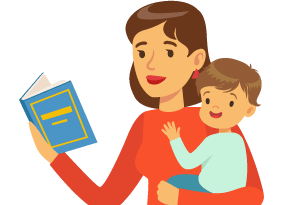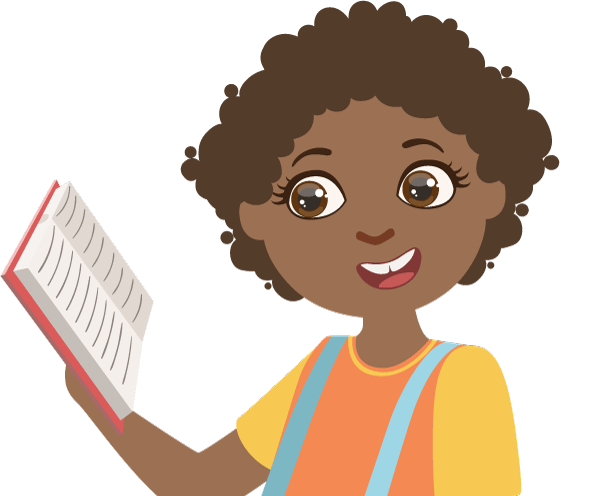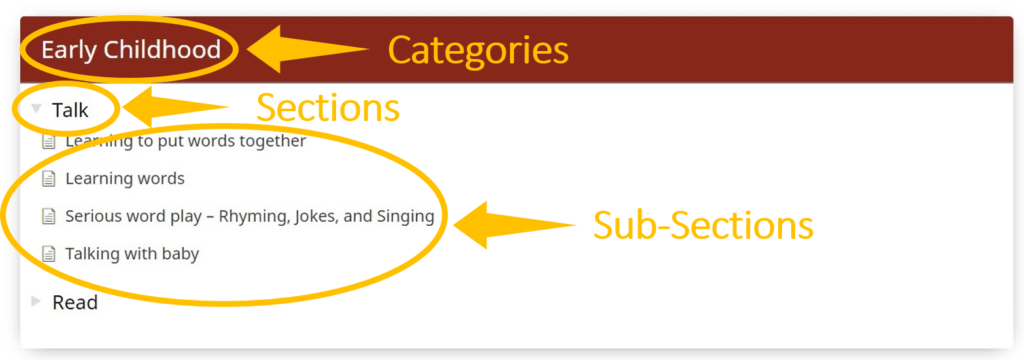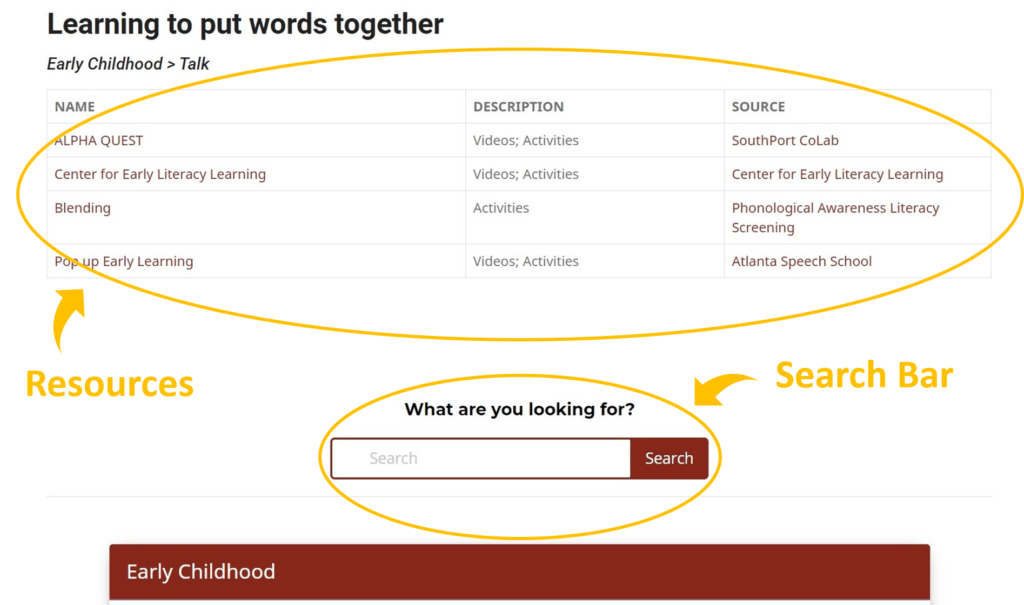Trusted online resources for PARENTS and EDUCATORS
Below is a compilation of links to FREE, HIGH-QUALITY content for children and teens with different levels of reading proficiency. All the content has been VETTED by RESEARCH SCIENTISTS and is based on the Science of Reading.
This resource library is designed to help parents and educators easily navigate through the overwhelming amount of information available online on promoting literacy development in children of all ages.
Find resources for a specific skill, or use the structure to guide the development of critical literacy-related skills – the choice is yours!
What are you looking for?
Early Childhood
Early Readers
Letters and Word Parts
Oral Language & Reading Comprehension
Writing
Developing Readers
Learning to Read Words & Longer Texts
Oral Language & Reading Comprehension
Writing
More Advanced Readers
Vocabulary & Reading Comprehension
Writing
What do we mean by:
- English
- Español

Early Childhood
Early Childhood is the time period between birth and five years when a child usually begins formalized education. Studies suggest that high-quality activities for skill development are particularly important when children are three and four years of age.

Early Readers
Early Readers have been introduced to reading, but they are just beginning and cannot read many words by themselves yet.

Developing Readers
Developing Readers are learning to put together their growing oral language skills (like vocabulary knowledge) with their growing ability decode printed words and read simple stories. They are beginning to apply what they know to read harder words, sentences, and longer stories.

More Advanced Readers
More Advanced Readers can read complex words and are comfortable with different types of text. These students are often in the middle or high school years.

Primera Infancia
La primera infancia es el período de tiempo entre el nacimiento y los cinco años de edad, momento en que el niño generalmente comienza la educación formal. Estudios sugieren que ciertas actividades que los niños pueden hacer entre los tres y cuatro años de edad, son particularmente importantes para el desarrollo de las habilidades precursoras del aprendizaje y la lectura.

Lectores principiantes
Los lectores principiantes son los niños que recién comienzan a aprender a leer, y por eso leen pocas palabras en forma independiente.

Lectores en desarrollo
Los lectores en desarrollo pueden combinar su creciente habilidad del lenguaje oral (como el conocimiento del vocabulario o estructuras sintácticas) con su creciente habilidad para decodificar palabras impresas y así poder leer historias simples. Pueden aplicar sus conocimientos iniciales de lectura para leer palabras más difíciles, oraciones e historias más largas.

Lectores Más Avanzados
Los lectores más avanzados pueden leer palabras complejas y se sienten cómodos con diferentes tipos de textos. Estos estudiantes a menudo están en los últimos años de escuela primaria o en secundaria. Estos lectores ya leen para aprender.
Do you think that a resource is missing? Simply click on the button below and fill out the form to let us know. We will review it and add it to the library if the resource is FREE and of HIGH QUALITY.



